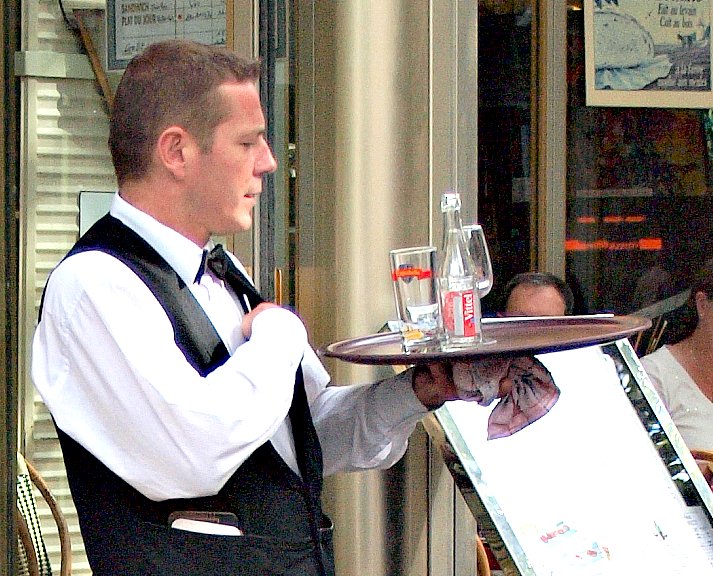Why You’re Afraid of Speaking French with The Natives – Tales of Rudeness & Discrimination
Do you feel nervous about speaking French with native speakers due to fear of rudeness or being judged?
Many learners have faced linguistic discrimination or condescension while trying to use their French skills.
Below, I share ten personal encounters (from real-life people) that illustrate overcoming rude behavior while trying to speak french. I also suggest practical tips to help you overcome these situations with confidence and keep your language learning on track.
1. At a Cafe in Paris

Sarah, an American visiting Paris, tries ordering coffee in French. Despite her best efforts, the waiter corrects every word she said, visibly annoyed. Sarah feels embarrassed and judged, which makes her hesitant to try speaking French again.
Tip: Don’t let one bad experience deter you. Keep practicing your French. If you encounter someone rude, remind yourself that this does not reflect everyone’s attitude.
Try to engage in simple conversations with locals who seem friendly and patient, like at a local market or a less touristy spot.
2. In a French Market
Tom, a British expat, asks for tomatoes in French at a market, using the wrong gender. The vendor mocks his accent and corrects him loudly, drawing attention from other shoppers – making Tom feel belittled.
Tip: Practice gender usage since it’s a common stumbling block. Use mobile apps or flashcards to improve your command of French nouns and their genders.
Laugh off any mistakes and thank the person for correcting you, like you appreciate their help.
3. Conference in Lyon
While attending a professional conference in Lyon, Anita, from India, tries to network using her intermediate French. A French colleague responds sharply in English, implying her French is too poor for a serious discussion. This undermines her confidence.
Tip: In professional settings, it’s okay to start a conversation by asking if it’s alright to practice your French. This will set expectations and reduce pressure.
Also, preparing key phrases related to your industry will boost your confidence.
4. Shopping in Bordeaux
Alex, a student from Spain, asks for a product in a store in Bordeaux. The store assistant smirks and replies very fast in French, making it impossible for him to understand. This feels to him like a deliberate exclusion.
Tip: Sometimes, asking the speaker to slow down can help. Practice phrases like “Pouvez-vous parler plus lentement, s’il vous plaît?” Most people will appreciate your effort to understand and respond positively.
5. Dining in Marseille
Jessica from Canada is dining out with French friends in Marseille. When she tries to join the conversation in French, her friend’s partner corrects every sentence she makes. This makes her feel like she’s under a microscope rather than part of the group.
Tip: try to turn the correction into a learning moment by asking for tips or explanations on your errors. Also try to find supportive language exchange partners or friends who encourage your learning.
6. Rush Hour in Nice
Kevin, a tourist from Australia, tries to ask for directions in French during the busy rush hour in Nice. However, he stumbles over his words, and the person he asks snaps back, “Speak French properly or speak English!”
This public scolding makes him feel reluctant to try speaking French again.
Tip: Rush hours are stressful and people may not always respond kindly if they’re in a hurry. Try to approach people who are not in a rush, like shopkeepers or café staff during quieter hours. Also prepare and practice key phrases before you need to use them.
7. In a Strasbourg Bakery
Mia, from the Netherlands, practiced her French diligently before visiting Strasbourg. In a local bakery, she tries to order in French, but the baker interrupts her, switching to English immediately, disregarding her attempt to use the language.
Tip: If someone switches to English, politely explain that you are learning French and would like to practice. Most people will understand and slow down or help you out.
Also, make sure you regularly practice your speaking skills with native speakers, e.g. through language exchanges, to improve your fluency and confidence.
8. Train Station in Toulouse
While trying to buy a train ticket in Toulouse, Jane, a visitor from Ireland, uses her basic French to communicate with the ticket agent. The agent becomes impatient, corrects her pronunciation harshly, and rolls his eyes.
This makes Jane feel unwanted and anxious about using French in public.
Tip: In situations where you feel overwhelmed, take a moment to gather your thoughts. Carrying a small phrasebook or having a translation app ready can help you quickly find the right words or phrases.
9. Apéro in Biarritz
Carlos, from Mexico, attends a social gathering in Biarritz to practice his French. He tries starting a conversation with a group of locals, but they quickly switch to the Basque regional dialect, excluding him from the conversation intentionally.
Tip: Encountering dialects is a pain. If you feel left out, you can try asking kindly if they can speak standard French so you can understand better (they may not switch, though).
Alternatively, look for language exchange meetups where people are more patient and open and supportive to learners.
10. Tourist Info in Nantes
Lila, from the United States, asks for hotel recommendations in French at a tourist information center in Nantes. The staff member responds sarcastically about her accent and speak too quickly – making her feel more ridiculed than helped.
Tip: It’s important to maintain your confidence. If someone responds negatively, try to stay polite and ask for clarification or help again. Repeating your question can sometimes prompt a more helpful response – though not always.
Final words
It’s not easy dealing with rude responses when you’re just trying to speak French. But keep in mind, for every bad experience, there’s a chance to learn something new.
Use these tips to brush off the negativity and improve your French. Keep practicing, and don’t give up!
